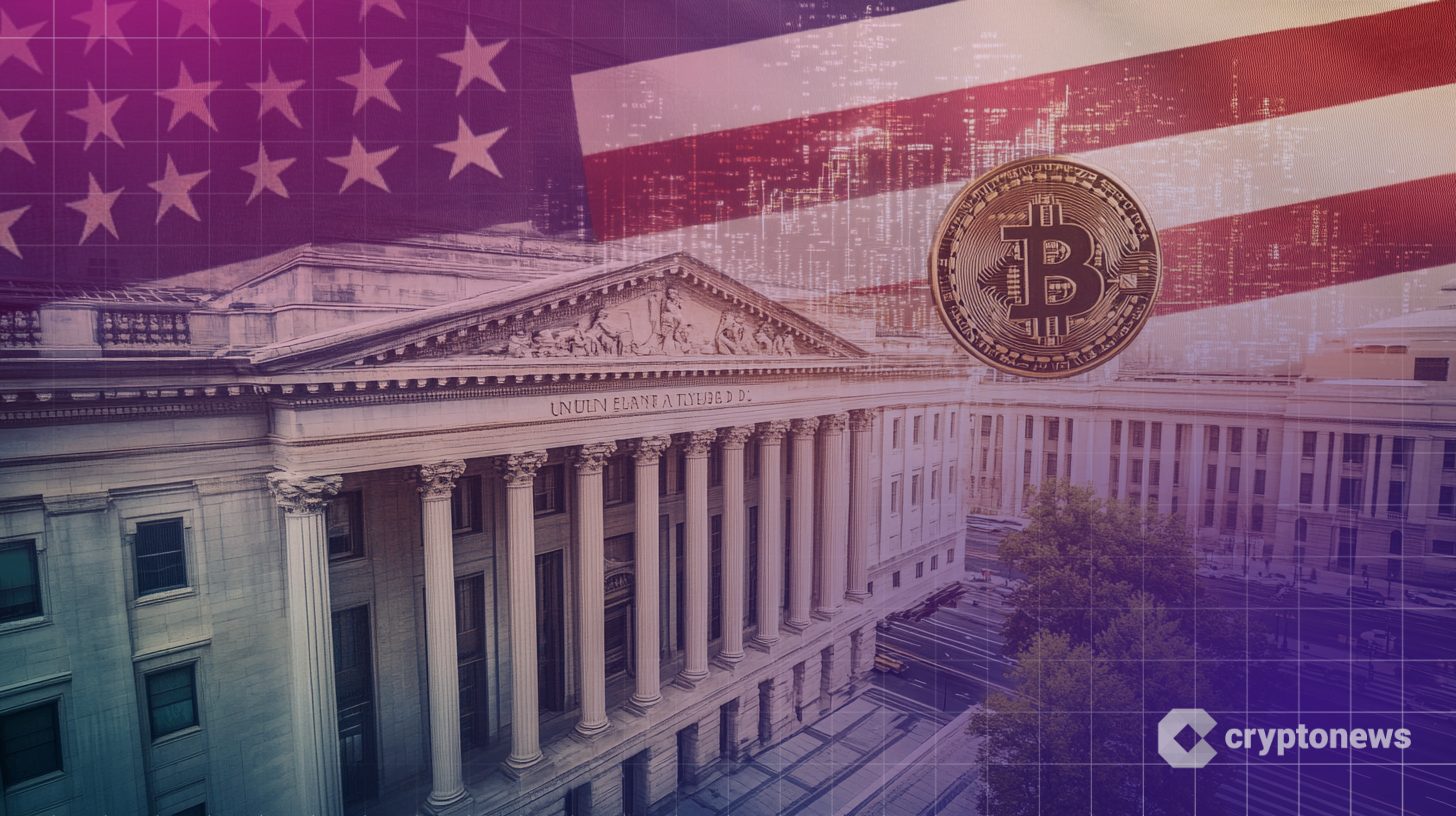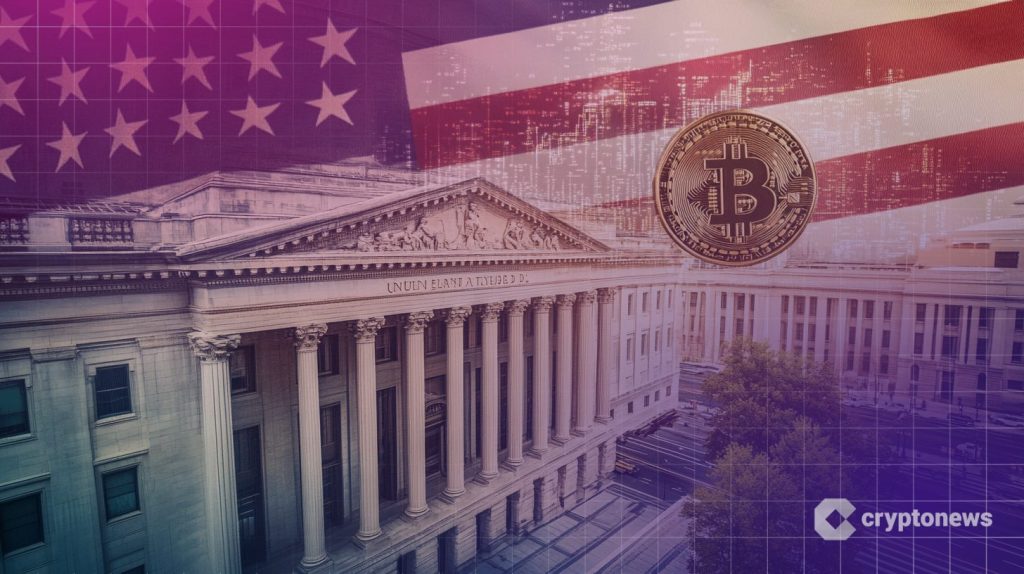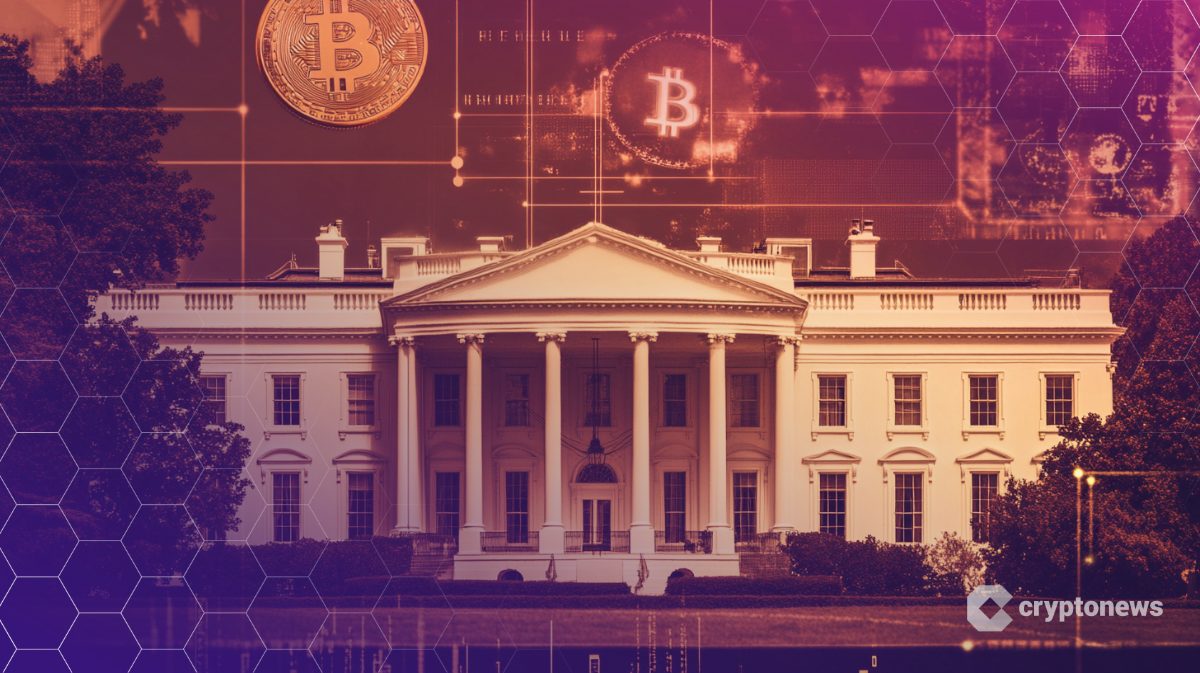Last updated:
 Why Trust Cryptonews
Why Trust Cryptonews

Key Takeaways:
- The U.S. Treasury is set to disclose its crypto holdings, which could transform digital assets into strategic national reserves and shift government policy toward legitimizing cryptocurrencies.
- The establishment of a Strategic Bitcoin Reserve as a “digital Fort Knox” is part of Bitcoin’s growing role as a long-term store of value in federal financial strategy.
- This transparency may influence global crypto adoption and market dynamics, as this marks a turning point for both regulation and institutional confidence in digital assets.
Following President Donald Trump’s recent executive order, the US Department of the Treasury and federal agencies are expected to disclose their Bitcoin and other cryptocurrency holdings on April 5.
The announcement is anticipated to reveal whether assets such as XRP, Solana, and Cardano, previously mentioned by Trump, are included in the government’s digital asset reserves.
How Much Crypto Does the U.S. Really Own? Treasury Set to Reveal Holdings
Trump’s executive order issued on March 6 mandated the creation of a Strategic Bitcoin Reserve and a Digital Asset Stockpile.
According to a presidential document published on March 11, all federal agencies were given 30 days to report their digital asset holdings to the Treasury Secretary.
The directive also requires the establishment of two new offices to oversee these assets, with the Strategic Bitcoin Reserve specifically designated for Bitcoin acquired through civil or criminal forfeiture.
Unlike other holdings, Bitcoin in this reserve will not be sold, positioning it as a long-term store of value akin to a “digital Fort Knox.”
The forthcoming disclosure is expected to clarify the scope of the government’s crypto holdings, which could have broader implications for the market.
David Bailey, CEO of BTC Inc, noted that the audit results might help explain Bitcoin’s recent price fluctuations.
“Depending on what we learn, it might answer many of the open questions about the recent price action,” Bailey said.
Bitcoin’s price has been highly volatile since the announcement of the Strategic Bitcoin Reserve.
Concerns over trade tensions and recession risks have contributed to a 10% decline, with Bitcoin dropping from over $92,000 to around $82,000.
According to data from Arkham Intelligence, the US government currently holds approximately 198,012 BTC, valued at around $16 billion.
White House crypto czar David Sacks stated that the government has accumulated roughly 400,000 BTC through asset forfeitures over the past decade.
However, about half of that (195,000 BTC) was sold, generating $366 million. If those holdings had been retained, their value today would exceed $17 billion.
U.S. States Push Bitcoin Legislation Amid Federal Crypto Transparency Efforts
As federal agencies prepare to disclose their crypto holdings, U.S. states are making aggressive moves to integrate Bitcoin into their financial systems.
While this federal transparency initiative unfolds, individual states aren’t waiting to forge their own paths forward. According to Bitcoin Laws, at least 23 states have introduced Bitcoin reserve bills, with 35 proposals still under consideration.
Kentucky recently took a big step, with Governor Andy Beshear signing the “Bitcoin Rights” bill (HB 701) into law.
This legislation grants residents the right to self-custody Bitcoin and supports crypto mining, reinforcing Kentucky’s position as a major mining hub. Kentucky is currently responsible for 11% of the U.S. Bitcoin hash rate.
Other states are following suit. Oklahoma’s Strategic Bitcoin Reserve Act (HB 1203) cleared the House with a 77-15 vote and is now awaiting Senate approval. If passed, it would allow state funds to be allocated to Bitcoin and other digital assets.
Meanwhile, Arizona lawmakers advanced two key bills, SB 1373 and SB 1025, permitting the state treasurer to invest up to 10% of reserve and pension funds into Bitcoin.
North Carolina is also exploring crypto investments, with multiple bills proposing to allocate up to 10% of state funds to digital assets. If enacted, these measures could provide long-term financial protection against inflation while reinforcing Bitcoin’s role in public finance.
According to Bitcoin Laws, if these state initiatives proceed, they could result in up to $23 billion in Bitcoin purchases, potentially adding 247,000 BTC to government reserves.
The upcoming federal crypto disclosure represents an interesting moment in US financial policy. As federal agencies prepare to reveal their holdings while states increasingly incorporate Bitcoin into their financial frameworks, the nation appears to be at a crossroads.
The transparency initiative could legitimize cryptocurrencies as a mainstream asset class and potentially influence global adoption patterns. Regardless of whether this signals the beginning of a new era where digital assets become integral to national financial strategy, the April 5 disclosure will undoubtedly provide crucial insights into the government’s long-term vision for cryptocurrency.
Frequently Asked Questions (FAQs)
The U.S. could legitimize Bitcoin as a strategic asset by publicly holding it, potentially influencing other nations to adopt similar reserves and accelerating Bitcoin’s mainstream acceptance.
Federal transparency might encourage states to expand their Bitcoin legislation, which could directly create a unified national approach to integrating digital assets into public finance.
A federal endorsement of crypto holdings could ignite institutional confidence, drive inflows into digital assets, and foster broader market participation. Of course, this all depends on broader macroeconomic forces and other factors.





